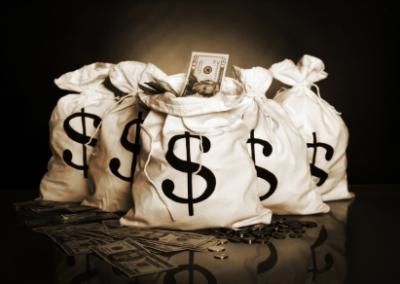For some time now, it has seemed as if Canada’s foreign policy approach toward China has been similar to that old Abbott and Costello baseball shtick of “Who’s on First?” That is to say, Ottawa’s strategy, insofar as one can even call it that, has been a circular, confusing and nonsensical parody. The major difference is, clearly, there is no humour to be found; rather, this comedy of errors carries only dire consequences for Canada.
The Trudeau government’s latest confounding abdication of common sense stands out for being particularly egregious. Ottawa has allowed a Chinese state-owned company, Zijin Mining, to bid on a Canadian-owned lithium mining operation, Neo Lithium Corp. The government has done this while abandoning the national security review that accompanies such purchases. The Liberals claim this is a non-issue as Neo Lithium’s operation is not in Canada, even though the headquarters is based here. But this just speaks to their narrow-minded naiveté about the threat posed by China.

Surely the Trudeau government knows that critical minerals like lithium are crucial to addressing the climate crisis. It is therefore absurd that we are allowing China to capture an even greater presence over resources critical to the green transition. A major polluter and unwilling climate partner, it defies logic that Ottawa would further cede control to China over global climate efforts by allowing it to solidify dominance over this sector.
On the security front, Ottawa must also know that critical minerals and rare earths play an indispensable role in cutting-edge defence and technology industries. Moreover, safeguarding long-term energy security requires reliable supply chains of such materials as lithium. These strategically vital resources and their supply and value chains are increasingly being snatched up by China in an effort to economically coerce states into political compliance, as China attempted to do against Japan in 2010 over the Senkaku Islands. And it appears that Ottawa is ready to let China do so without even a cursory review.
This is to say nothing of the routine human rights abuses China engages in. Whether we are speaking of Uyghurs facing genocide, religious minorities enduring persecution, Tibetans struggling against erasure, Hong Kong democracy activists confronting authoritarian jackboots, or the Han Chinese majority lacking basic political rights, it is immoral and unconscionable to make decisions that enrich the oppressors of these peoples.
Our national interests and values clearly dictate that we view deals like the Neo Lithium buyout with greater scrutiny. So the question remains: what, if anything, was the government thinking? Whether a byproduct of foolishness, malice, greed or some other vice, the decision does not inspire much confidence.
When will Canada, which has endured repeated abuse at the hands of the authoritarians in Zhongnanhai, stop nodding along approvingly to China’s efforts at domination?

Outsourcing jobs, prosperity and strategic resource supply chains to an adversary who has exhibited disdain and downright hostility toward Canada is a story line well known and a path well worn. The question is why, time and time again, we continue to walk blindly toward our own demise.
It may be inconvenient for some, but it is nonetheless true that China’s own actions betray the fact that the regime is not our friend. Consider its aggression toward neighbours in every direction. India in the Himalayas, Japan in the East China Sea, Taiwan over and in the narrow strait separating the two countries, the Philippines and others in the South China Sea — they all stare down a belligerent authoritarian regime.
Closer to home, we face similar challenges. Not a day goes by in which China ceases attempting encroachment in the Arctic, engaging in interference and influence operations against our citizens and elections, leveraging cyber warfare and espionage against our economy, and more. China kidnaps our citizens, invents fictitious causes for economic coercion, and sends diplomatic slaps and insults for the regime’s apparent amusement. And yet, we have done precious little about any of it.
Our allies have not failed to take notice of Canada’s strategic lethargy when faced with Beijing’s aggression. Our ability to be taken seriously at the important tables to which we have privileged access — NATO, the G7, the Five Eyes, and more — is predicated on credibility, trustworthiness and contributions. Set in this context, one can clearly see the major problems posed by Canada’s lack of a security review over the Neo Lithium deal and our sluggishness on whether we will allow Huawei into 5G. It is no wonder why we’re left on the outside looking in, on emerging partnerships like AUKUS.
And though Russia poses an immediate threat to our partners and interests, Canada must be able to work with our allies to stand against both Moscow and Beijing’s belligerence simultaneously. They are part of the same authoritarian challenge to the rules-based international order; our attention should not be divided but united against this shared challenge. That we lack the ability to confront both regimes simultaneously and strategically speaks to how atrophied our foreign affairs apparatus has become.
Frankly, a prime minister who claimed that “Canada is back” must suffer some cognitive dissonance to allow our standing among allies to be so eroded.
What then is the solution? It starts with something simple: we must stop rewarding China’s unconscionable behaviour. We cannot allow the Chinese Communist Party to continue to act with such aggression and impunity, and we must work with our allies to confront it. We must take a leadership role in this effort, inspiring our partners so as to prevent China from pressuring or exploiting weak links.

Once we get that very basic principle right, we must then embark on a serious conversation about our exposure and dependence on countries that cannot be relied on. While autarchy is neither possible nor ideal, we must nonetheless ensure that a greater amount of goods and products are produced and consumed domestically, particularly in strategic industries. The COVID-19 pandemic — another crisis which the Chinese Communist Party engendered — should have pointed to the necessity of such a move. And for those strategic goods and products that we cannot reasonably make and purchase domestically, we must work with our democratic allies and like-minded partners to develop more resilient supply chains, diversifying away from China and its proxies.
This is by no means the extent of how we should address the problems posed by China. But as Canada has been a particularly frequent and apparently feeble target, we must start with the basics. The history of the Justin Trudeau administration has yet to be written, and whether the prime minister finally finds his courage and confronts China may well determine whether he will be admired or admonished in our collective memory.
For his own sake and the sake of the country, the prime minister must finally show some leadership by definitively ending his comical approach to China. The only ones laughing are the Chinese Communist regime and the other bad actors who will take inspiration from our weakness and apparent paralysis.
Chronicles of Monte Friesner – Financial Crime Analyst
Courtesy of National Post
Contributed by Peter MacKay (FMR minister of national defence, minister of foreign affairs, attorney general and minister of justice in the Stephen Harper government.)








